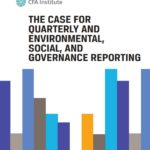Only a third of South Africas top companies publicly report that they have an employment equity policy, a fraud strategy or are addressing HIV/AIDS, despite the critical urgency of these issues, says KPMG in its 2001 survey of sustainability reporting.
Other sustainability issues covered in the survey include corporate governance, industrial relations, social and community issues, education and training, environment, safety, health and economic performance.
The survey is based on an analysis of the nature and extent of sustainability disclosure in annual financial reports and standalone public sustainability reports. The sample of annual financial reports that are assessed include the JSE All Share Index (ALSI) 100 companies, the Financial Mail Top 100 Industrials, the JSE top mines and public entities. Some 17 corporate sustainability reports are also evaluated.
"While South African companies still lag substantially behind their international counterparts in the production of standalone public reports, there is a clear trend towards transparent reporting on the so-called "triple bottom line" of economic, social and environmental performance," says KPMG environmental, health and safety associate director Wayne Visser.
"The best disclosure is in the areas of corporate governance, codes of ethics and employment equity, where more than 75% of companies are reporting information. Perhaps this reflects the impact of the King Code which is in the process of being revised, as well as government legislation."
"Weaker reporting areas are black economic empowerment, safety, health and environmental issues, where only around 50% of annual financial reports contain information. Given the fact that Johannesburg will be hosting the World Summit on Sustainable Development, it is concerning that only a quarter mention this issue," explains Visser.
Looking to the future, it is likely that various international drivers and trends will continue to exert pressure on companies to report on sustainability. These include, amongst others, international standards such as ISO 14001 on environmental management systems, Accountability 1000 on social and ethical accountability, the Sustainability Reporting Guidelines and the United Nations Global Compact. Likewise, in South Africa, the Promotion of Access to Information Act and the revised King Report will provide additional incentives for transparent disclosure on sustainability issues.
"The true value of sustainability reporting, however, will only emerge when a clear link is made between financial and non-financial performance and disclosure," ends Visser.
Top performers in sustainability reporting include Anglo American Platinum, Sasol, Eskom, ABSA Bank, SA Breweries Plc, Billiton BHP, and Palabora Mining Company".
Skip to content



